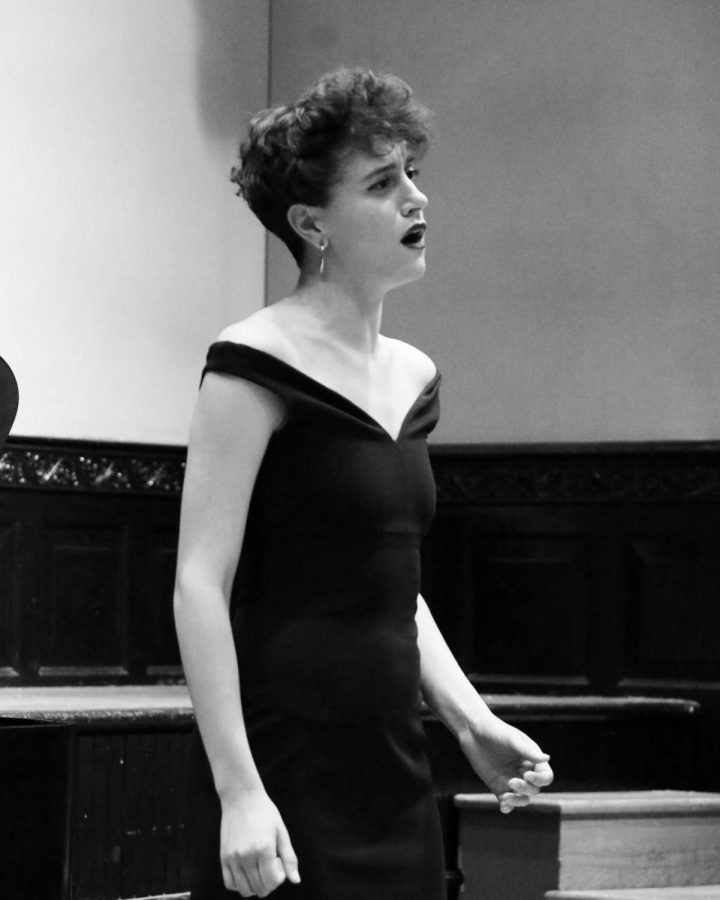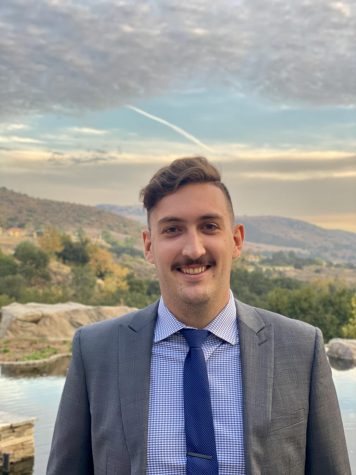When talent, determination and training harmonize, it seems as if there are no limits to what can be achieved. Catherine Durcan, a senior voice performance major, is very familiar with this phenomenon. As an opera singer, she pushes her body to the very extreme every time she practices and performs.
Durcan began singing at age 9 merely as a fascination and hobby. Her mom encouraged her to take voice lessons as a way to meet new people while doing something she loved.
“I didn’t know I wanted to pursue singing professionally until I was eighteen,” Durcan said, “I was tentative.”
Her interest in opera truly blossomed when she saw Giacomo Puccini’s “La Bohème.”
“Listening to Puccini is so impressive because (he) has such beautiful lines,” Durcan said, “When I first heard (“La Bohème”) I said, ‘I want to do that with my body.’”
Singing opera is an art form that requires the entirety of the body, not just the parts that contribute to creating sound. The challenges that opera singers face range from tightness in their jaw to soreness in their back.
“The difference between opera singers and pop singers, for example, is that it takes so much more vocal stamina,” Durcan said.
Unlike other types of singing, opera does not utilize a microphone. It relies heavily on the strength of the performer to project and use the power of their voice all while keeping in time with the music and reciting lyrics frequently in a different language. The best opera singers make this seem effortless.
“A challenge I face most often is that my body can’t get out of its own way to sing,” Durcan said. “(Singing opera) requires so much coordination… You have to be comfortable with your body in a way that (singing) comes second nature.”
When she is singing, Durcan has to be mindful of several different aspects of her body. Her larynx, jaw and breathing are just a few examples.
“It is a lot of trial and error, and you have to communicate what you are experiencing,” Durcan said.
Alexander Stanescu, who has seen Durcan perform, said he was astounded by all that goes into the art of opera.
“You have to truly appreciate the immense amount of artistry and skill that go into producing such powerful and intricate sounds,” he said. “It is hard to believe that the human body can achieve this.”
Beyond the physical challenges of singing opera lies the competitiveness of the industry. Opera, and music in general, is a difficult field to find lasting success in.
“You have to be really good to get to the top, and you have to network,” Durcan said, “Unfortunately, it is not just a talent-based system.”
Most professional opera singers’ careers begin later in life since opera involves such intensive training.
This past summer, Durcan had the opportunity to attend a Russian opera workshop in Philadelphia, and further her skills.
“It was an amazing experience,” she said, “It really opened my eyes to where I am in my progression in learning to be a singer… and it really motivated me.”
Despite the competitive nature, opera singing and music performance is an extraordinarily tight-knit community, especially here at San Diego State.
Durcan, along with other music performance majors, is participating in SDSU’s production of Jonathan Dove’s “Flight,”which premieres Friday, Nov. 16 at 7 p.m. with additional shows on Nov. 17 at 7 p.m. and Nov. 18 at 2 p.m.









